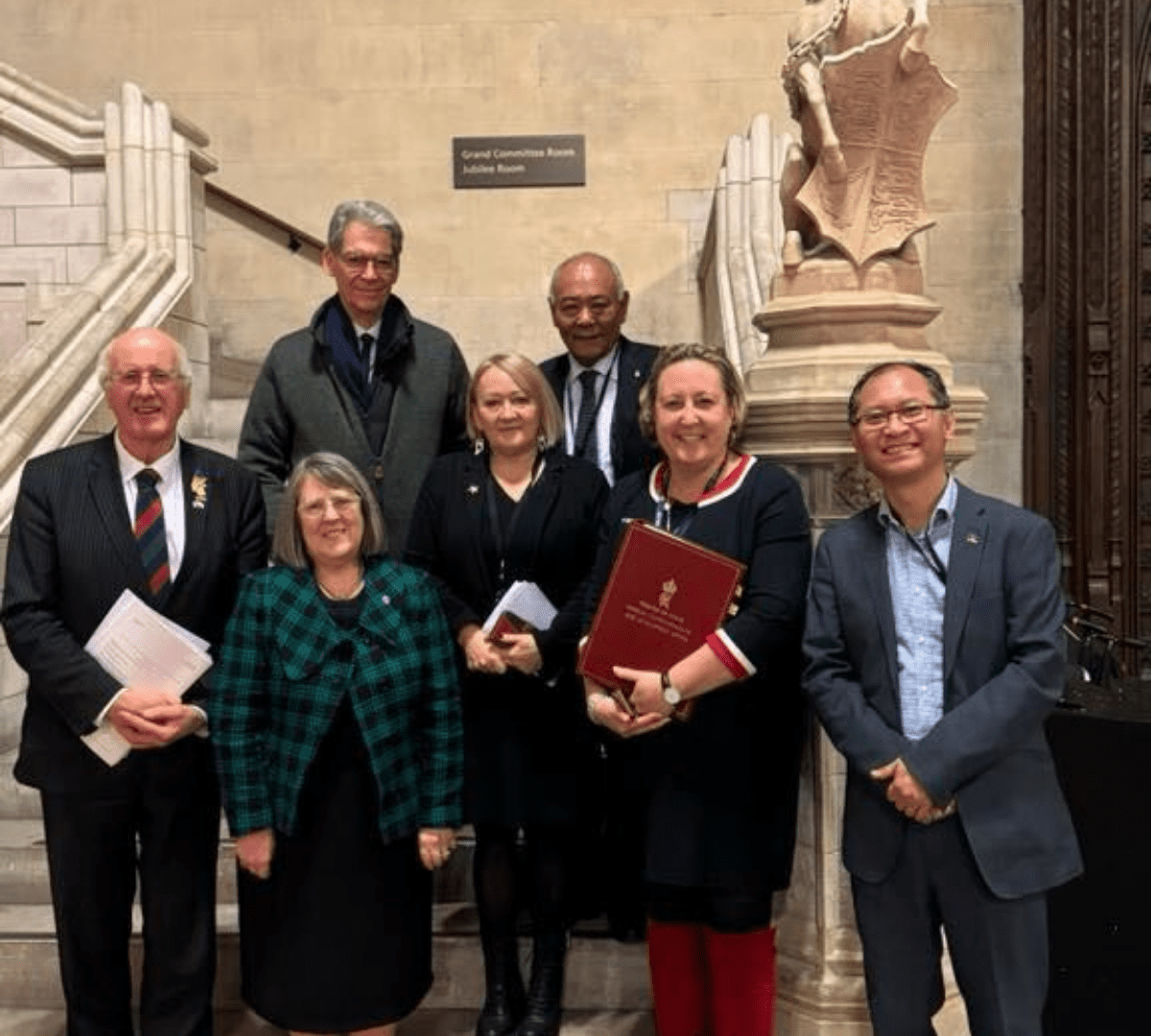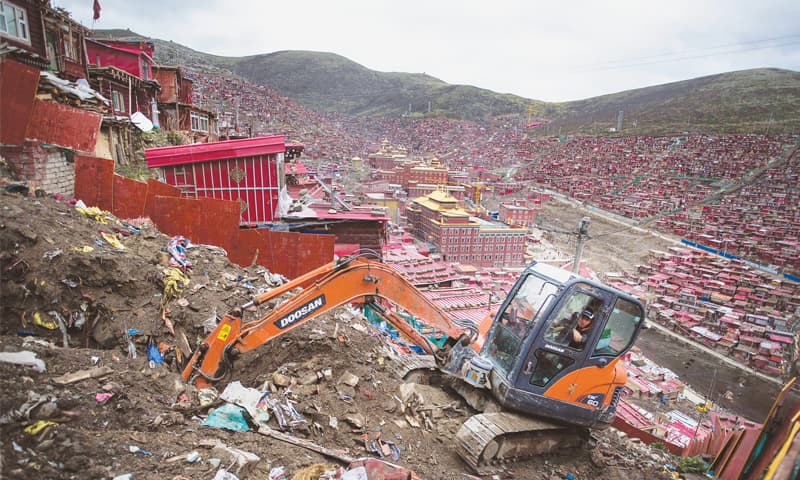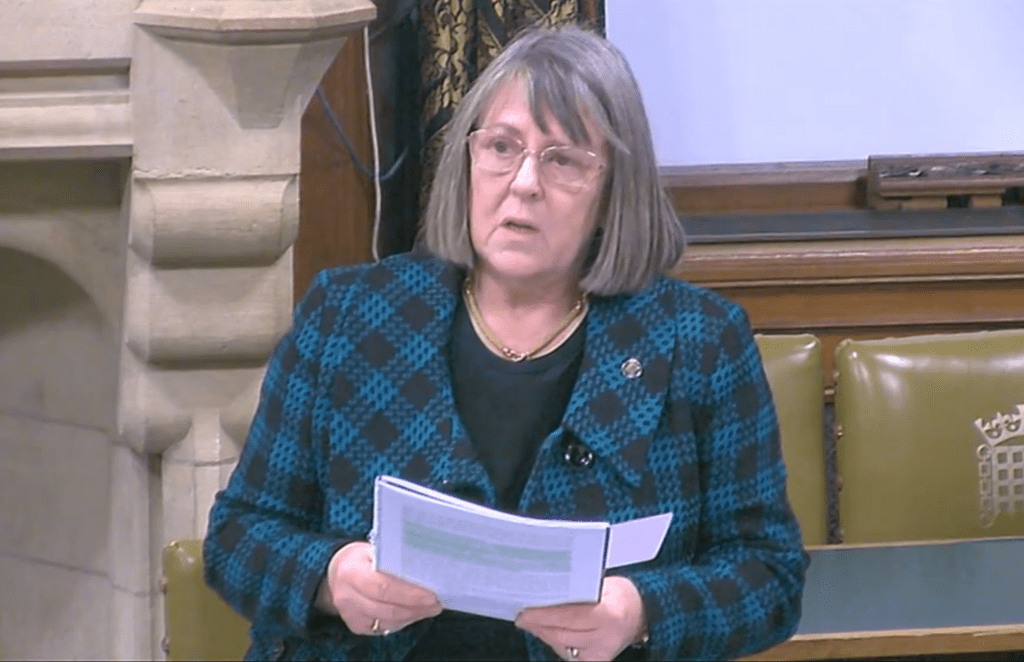
MPs demand more UK government action on Tibet
The persecution of Tibetan Buddhists and the threats to Tibet’s future were discussed on Thursday in a debate by MPs at Westminster Hall.
During the 90-minute discussion, MPs raised a range of concerns on Tibet and grilled the Minister of State for Indo-Pacific, Anne-Marie Trevelyan, urging her and the UK government to dedicate more attention to Tibet and to use stronger language when describing the human rights violations Tibetans face.
Jim Shannon called the debate. After introducing the topic of the debate, entitled “Persecution of Buddhists in Tibet”, he summarised the situation of religious freedom in occupied Tibet as “grave, with nigh on total governmental control over religious institutions and attempted suppression of language and material culture”. His opening remarks saw him say several times: “We must do all we can to help Tibet”.

Jim Shannon MP summarises the key threats to religious freedom in Tibet
Labour MP and member of the All-Party Parliamentary Group for Tibet, Kerry McCarthy, followed and talked more broadly about the various emergencies in Tibet. She recalled her meeting earlier this year with Tibetan education expert Dr Gyal Lo and her concerns about how around one million Tibetan children have been forced into the Chinese boarding school system. Having just returned from the UN Climate Conference, COP28, she also highlighted the importance of preserving Tibet’s fragile ecology.
Fiona Bruce, the government’s Special Envoy for Freedom of Religion or Belief, attended in her capacity as an MP. She highlighted submissions from Tibet groups including Free Tibet and Tibet Watch over the past decade on matters including torture and the demolitions and expulsions from the religious communities of Larung Gar and Yarchen Gar. She then echoed Kerry McCarthy’s concerns regarding the residential school system and how one million children are facing the “erosion of their identity”.

Demolitions at the Tibetan Buddhist community Larung Gar in 2016
Expressing her deep frustration at the lack of attention the UK government has dedicated to Tibet, she called for stronger language on Tibet in official statements. International attention “has not been focused on Tibet with the intensity that it should be, and that includes us in the UK” and said that much stronger language should be used on Tibet to reflect the “absolute misery” that Tibetan children face.
Making reference to the 75th Anniversary of the Genocide Convention, Fiona Bruce added that the international community had committed to ensuring that genocide never happened again, but that to her, it seemed to be repeating itself in the case of Tibetan children.
Fiona Bruce announced that Tibet’s missing Panchen Lama, Gedhun Choekyi Nyima, has been selected as the Prisoner of Conscience by the 42-country International Religious Freedom or Belief Alliance, which selects a persecuted religious personality for attention every month.

Fiona Bruce MP urges the UK government to use stronger language when talking about Tibet
Anne-Marie Trevelyan, Minister of State for Indo-Pacific, arrived midway into the debate and clarified the UK government’s position on several of the matters raised.
When Jim Shannon intervened to note that the Chinese government is attempting to replace the name “Tibet” with the word “Xizang”, widely rejected by Tibetans, the Minister replied that the government would continue to use “Tibet”.
The UK government has yet to explicitly support the exclusive right of Tibetan Buddhists to identify the next Dalai Lama when the moment comes. In response to Jim Shannon mentioning that Chinese leaders have recently been conducting outreach in neighbouring Himalayan Buddhist countries including Bhutan and Nepal to promote China’s authority in choosing the next Dalai Lama, the Minister replied that his succession was a matter for “the relevant religious authorities”.
In response to Catherine West raising concerns about the new Foreign Secretary David Cameron and his business links to China, the Minister offered assurances that the UK’s China policy “remains entirely unchanged” and that the government “will always condemn human rights violations”.
Jim Shannon summed up by noting the Tibetans in the gallery and noted that today, MPs were a voice for those facing religious repression, concluding: “we want them all to know that when it comes to standing up for them and standing alongside them, this house and its members will not be found wanting.”
After this, the Chair read out the motion and in the absence of any opposition ruled the motion as passed. Having sat through the debate, Free Tibet’s Advocacy Officer took a moment to thank the MPs who turned up and expressed their solidarity with Tibet.

